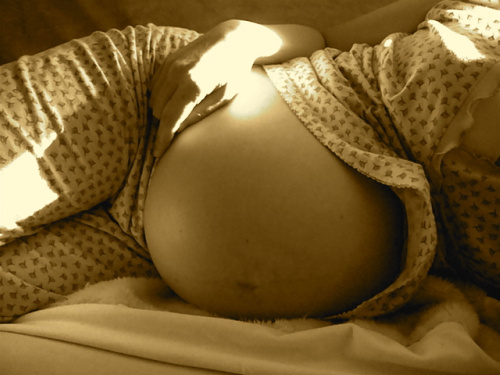 Scientists at the University of Utah report that the genes of offspring are modified in the womb as a result of the mother’s diet, emphasizing that what the mother eats (or doesn’t eat) influences the health of the child throughout its life.
Scientists at the University of Utah report that the genes of offspring are modified in the womb as a result of the mother’s diet, emphasizing that what the mother eats (or doesn’t eat) influences the health of the child throughout its life.
“The new ‘epigenetics’ has taught us how nature is changed by nurture. The jury’s in and, yes, expectant moms really are eating for two. This study shows not only that we need to address problems such as preeclampsia during pregnancy, but also that prenatal care is far more important than anyone could have imagined a decade ago.” – Gerald Weissmann, M.D., Editor-in-Chief of FASEB Journal
[social_buttons]
The science of epigenetics explains how genes can be modified by the environment, and according to the new study published in FASEB (Journal of the Federation of American Societies for Experimental Biology), “You are what your mother did not eat during pregnancy.”
The research found that rat fetuses which received poor nutrition in the womb were genetically primed to be born into an environment lacking proper nutrition. As a result, the offspring were more likely to be smaller, as well as being at higher risk for lifelong health problems, such as obesity, diabetes, cardiovascular disease, growth retardation, and neurodevelopmental delays. The authors of the study stated that the genes and cellular mechanisms affected are the same in rats as in humans, and therefore the same links can be made for humans.
“Our study emphasizes that maternal–fetal health influences multiple healthcare issues across generations. To reduce adult diseases such as diabetes, obesity, and cardiovascular disease, we need to understand how the maternal–fetal environment influences the health of offspring.” – Robert Lane, professor of pediatric neonatology at the University of Utah
The experiments used two groups of rats, a control group and a restricted nutrient group. The group receiving restricted nutrients (through the placenta) was examined after birth and at 21 days old (preadolescent age for rats) and measured for IGF-1, a protein responsible for normal growth and development. Researchers found that the lack of nutrients in the second group caused the gene responsible for IGF-1 to significantly reduce the amount produced in the body both before and after birth.
Image: dizznbonn at Flickr under CC License
Fascinating, thank you.
On the one hand, this study is fascinating. On the other, and as a mother, I can’t help but feel like “Oh great. Another study telling women what they *should* be doing while pregnant.” It’s tiresome after awhile no matter how good the science.
Have you got a link to the article? I could not find it in the March or April editions of FASEB. Thanks.
David: The abstract is here http://www.fasebj.org/cgi/content/abstract/fj.08-124768v1
Definitely sent this to all my mom/preggo friends!
Eat healthy foods, full of fruits and veggies. Stay away from the fast food and processed.